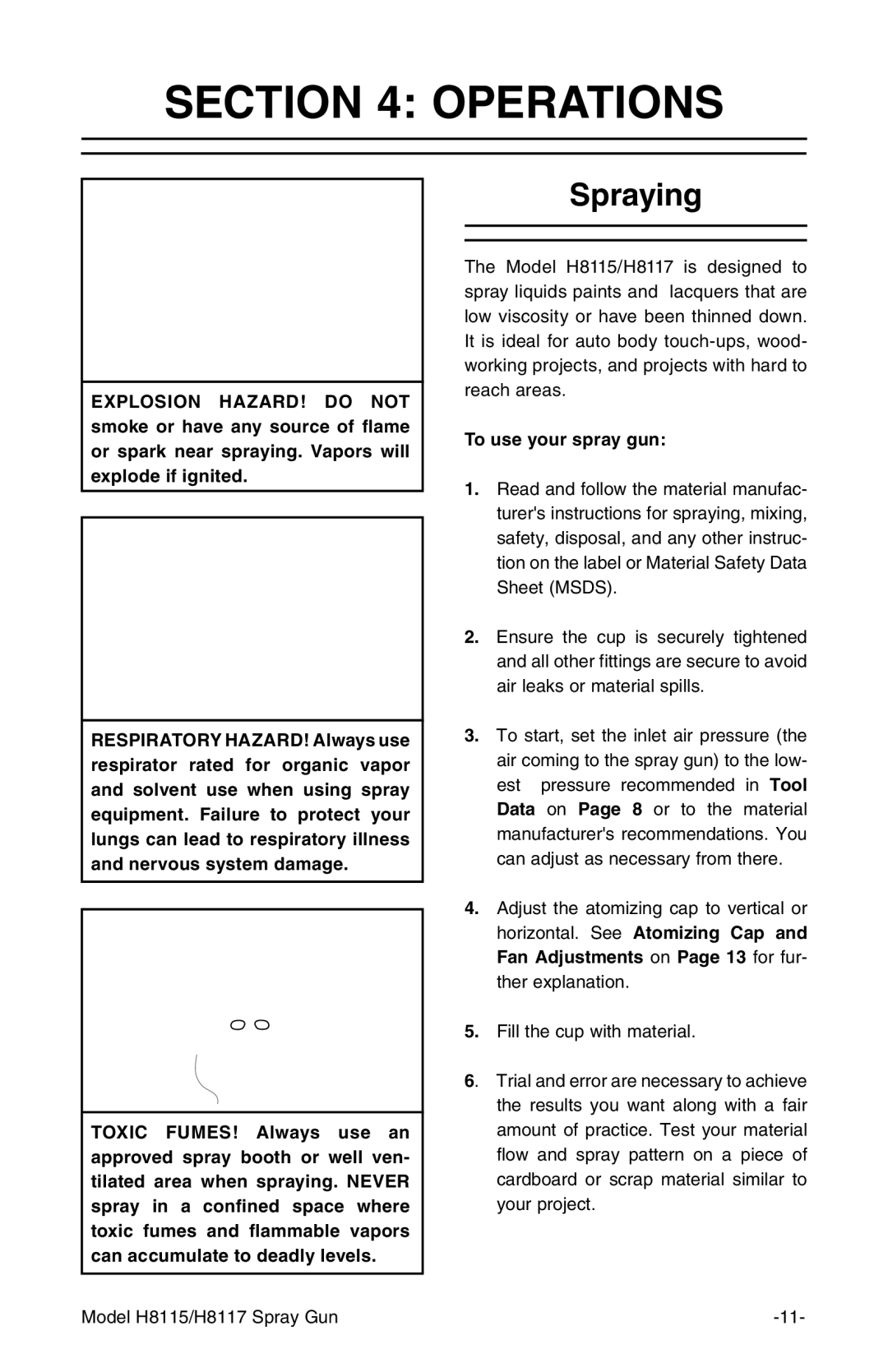
SECTION 4: OPERATIONS
EXPLOSION HAZARD! DO NOT smoke or have any source of flame or spark near spraying. Vapors will explode if ignited.
RESPIRATORY HAZARD! Always use respirator rated for organic vapor and solvent use when using spray equipment. Failure to protect your lungs can lead to respiratory illness and nervous system damage.
TOXIC FUMES! Always use an approved spray booth or well ven- tilated area when spraying. NEVER spray in a confined space where toxic fumes and flammable vapors can accumulate to deadly levels.
Spraying
The Model H8115/H8117 is designed to spray liquids paints and lacquers that are low viscosity or have been thinned down. It is ideal for auto body
To use your spray gun:
1.Read and follow the material manufac- turer's instructions for spraying, mixing, safety, disposal, and any other instruc- tion on the label or Material Safety Data Sheet (MSDS).
2.Ensure the cup is securely tightened and all other fittings are secure to avoid air leaks or material spills.
3.To start, set the inlet air pressure (the air coming to the spray gun) to the low- est pressure recommended in Tool Data on Page 8 or to the material manufacturer's recommendations. You can adjust as necessary from there.
4.Adjust the atomizing cap to vertical or horizontal. See Atomizing Cap and Fan Adjustments on Page 13 for fur- ther explanation.
5.Fill the cup with material.
6. Trial and error are necessary to achieve the results you want along with a fair amount of practice. Test your material flow and spray pattern on a piece of cardboard or scrap material similar to your project.
Model H8115/H8117 Spray Gun |
